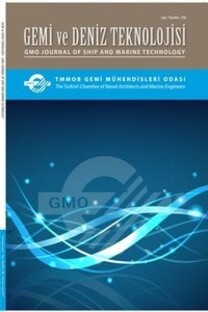Experimental Investigation of the Effects of N-Butanol Fumigation on Engine Performance and Exhaust Emissions in a Turbocharged Diesel Engine
In the
present study, the effects of n-butanol injection into intake air (n-butanol
fumigation, nBF) on the performance and exhaust emissions were experimentally
investigated in a Renault K9K 700 type turbocharged common-rail DI automotive
diesel engine. Experiments were performed under five different loads such (140
Nm, 125 Nm, 110 Nm, 95 Nm and 80 Nm) and at 3000 rpm engine speed, for various
n-butanol ratios. Here, n-butanol was injected into intake air by using an
adapted carburetor, which main nozzle section is adjustable to give
approximately 2 %, 4 %, 6 %, 8 % and 10 % (by vol.) n-butanol ratios. The test
results showed that effective power values for selected nBF ratios are nearly
equal to neat diesel fuel (NDF). However, break specific fuel consumption
increases and effective efficiency decreases considerably for all of the
operating conditions. NOx emissions decrease, whereas THC and CO
increase significantly for all of the selected nBF ratios. Opacity increases
for high loads (140 Nm, 125 Nm and 110 Nm) and increment ratios of opacity for
high nBF ratios are higher than that of lower nBF ratios. Although opacity
decreases under selected low loads (95 Nm and 80 Nm) for low nBF ratios, it
starts to increase after 6 % nBF ratio. Also, total fuel cost for selected nBF ratios
is higher than NDF. In the present
study, the nBF results were also compared with the results of the
n-butanol-diesel fuel blends (nBDFBs), which previously investigated
experimentally by authors, for three different loads and three n-butanol
percentages.
Anahtar Kelimeler:
Diesel engine, n-butanol fumigation, exhaust emissions, engine characteristics, cost analysis
___
- Abu-Qudais, M., Haddad, O. & Qudaisat, M. (2000). “The effect of alcohol fumigation on diesel engine performance and emissions,” Energy Conversion and Man., vol. 41, no. 4, pp. 389-399.
- Aksu, O. N. (2013) “Experimental Investigation of the Effects of the Use of n-Butanol-Diesel Fuel Blends on Engine Characteristics and Exhaust Emissions in a Turbocharged Diesel Engine”, Master Thesis, K.T.U., Institute of Science and Technology, Trabzon.
- Chen, Z., Liu, J., Wu, Z. & Lee, C. (2013). “Effects of port fuel injection (PFI) of n-butanol and EGR on combustion and emissions of a direct injection diesel engine,” Energy Conversion and Management, vol. 76, pp. 725-731.
- Dogan, O. (2011). “The Influence of n-butanol/diesel fuel blends utilization on a small diesel performance and emissions,” Fuel, vol. 90, no. 7, pp. 2467-2472.
- Durgun, O. (1990). “Experimental Methods in Engines, Lecturer notes for laboratory,” Karadeniz Technical University, Engineering Faculty, Mechanical Engineering Department.
- Durgun, O. (2013). “Fuels and Combustion, Lecturer notes,” Karadeniz Technical University, Engineering Faculty, Mechanical Engineering Department.
- Goldsworthy, L. (2013). “Fumigation of a heavy duty common rail marine diesel engine with ethanol–water mixtures,” Experimental Thermal and Fluid Science, vol. 47, pp. 48-59.
- Holman, J. P. (2001). “Experimental Methods for Engineers,” McGraw Hill Press, New-York.
- Kolchin, A., & Demidov, V. (1984). “Design of Automotive Engines,” Mir Publishers, Moscow.
- López, A. F., Cadrazco, V., Agudelo, A. F., Corredor, L. A., Vélez, J. A. & Agudelo, J. R. (2015). “Impact of n-butanol and hydrous ethanol fumigation on the performance and pollutant emissions of an automotive diesel engine,” Fuel, vol. 153, pp. 483-491.
- Rakopoulos, D. C., Rakopoulos, C. D., Giakoumis, E. G., Dimaratos, A. M., Kyritsis, D. C. (2010). “Effects of butanol-diesel fuel blends on the performance and emissions of a high-speed DI diesel engine,” Energy Conversion and Management, vol. 51, no. 10, pp. 1989-1997.
- Sahin, Z., Durgun, O. & Kurt, M. (2015). “Experimental investigation of improving diesel combustion and engine performance by ethanol fumigation-heat release and flammability analysis,” Energy Conversion and Management, vol. 89, pp. 175-187.
- Sahin, Z. & Aksu, O. N. (2015). “Experimental investigation of the effects of using low ratio n-butanol/diesel fuel blends on engine performance and exhaust emissions in a turbocharged DI diesel engine,” Renewable Energy, vol. 77, pp. 279-290.
- Siwale, L., Kristof, L., Adam, T., Bereczky, A., Mbarawa, M., Penninger, A. & Kolesnikov, A. (2013). “Combustion and emission characteristics of n-butanol/diesel fuel blend in a turbo-charged compression ignition engine,” Fuel, vol. 107, pp. 409-418.
- Tutak W. (2014). “Bioethanol E85 as a fuel for dual fuel diesel engine,” Energy Conversion and Management, vol. 86, pp. 39-48.
- Yao, M., Wang, H., Zheng, Z. & Yue, Y. (2010). “Experimental Study of N-Butanol Additive and Multi-Injection on HD Diesel Engine Performance and Emissions”, Fuel, vol. 89, pp. 2191-2201.
- ISSN: 1300-1973
- Yayın Aralığı: 2
- Başlangıç: 1955
- Yayıncı: TMMOB Gemi Mühendisleri Odası
